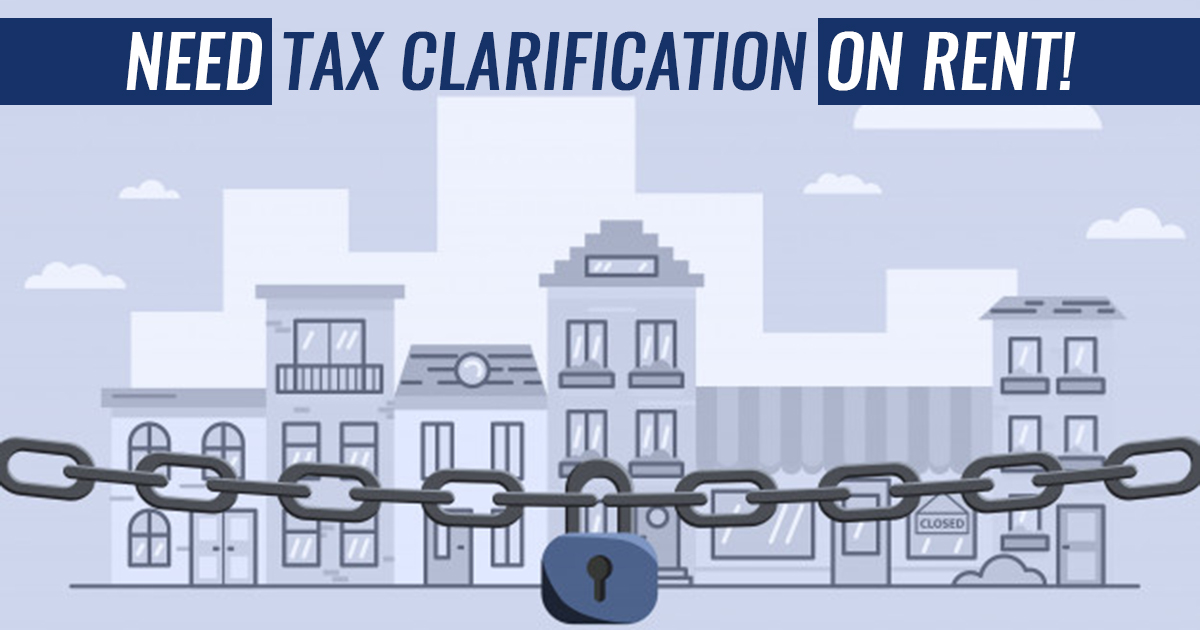The Covid-19 Pandemic has changed many things, one of the biggest changes is now work from home has become the new norm, many people have left their rental accommodation and shifted to their hometown. Due to losses and financial issues, many tenants have renegotiated the rent or requested for the waiver of the same. In between all these many tax-related issues 

The Tax Consequence of Waiver, Failure to Pay Rent
The ‘annual value’ of a let-out property is considered to be the sum of the amount for which the property can be expected to be let out to year to year market rate or the amount received as actual rent whichever is higher.
Due to the financial problems and delays in payments, many tenants requested their landlords to either waiver of the complete rent or reduce it. In this case, the question arises how will the exemption affect tax liability?
In the ongoing scenario, if the full or partial waiver of rent has been provided, a question or problem arises as to what should be the comparative fair rental price – market rent prevailing before or after the outbreak of the epidemic. Arguably, the lower post lockdown rents should be considered as fair rent.
Therefore, in the case of rent is partially waived on an ongoing basis, the same would be in line with prevailing market rates, the determinant of annual value. Now, if a full discount for a few months has been provided then it will not make any difference because the comparison is of ‘annual’ rent.
Read More: TDS Deduction on Property Sale Under Section 194IA with Penalty 
Further, the Act clarifies that the unrealised rent will not be a part of the actual rent received or even receivable. However, this will be only applicable, where the tenant has vacated the property or appropriate steps have been taken to force (not in unlawful ways) him to vacate the property. The landlord also needs to take all the appropriate steps required to take legal action against the tenant for recovery of unpaid rent or satisfy the Assessing Officer (AO) that the legal action will be not of any use in their case. The above-stated conditions do not really fit in the current scenario when the force majeure clause is in action.
Tax effect of vacancy of rented accommodation
As per the law where if the premises was left vacant during the complete or parts of the FY and the landlord can receive a lower rent than expected then only the actual amount will come under taxation even if it is less than the fair rent. It also states that if a property merely not in use still it can’t be considered as completely ‘vacant’. Even if the tenant is not using the property and due to which the property is temporarily vacant it would not entitle any tax consequences and the rent needs to be paid to the landlord thus it will come under the taxation.
Read More: Know Why Timely Payment of House Tax Necessary? 
Now in the case where the landlord allows the tenant to pay the complete rent or a part of it even with some delay then still it is taxable as the rent is still receivable during the year.
The government has yet to estimate the tax effect of the lockdown measures on rental income. Thus it is expected in the next year, during the period of reporting the revenue or income for the current FY. It is also expected that the government will come up with measures to solve all such issues.
For example, it will consider only the actual rent received/ receivable for the ongoing year instead of the fair rental value under taxation or let off the process for initiating legal measures in case of a vacancy.








